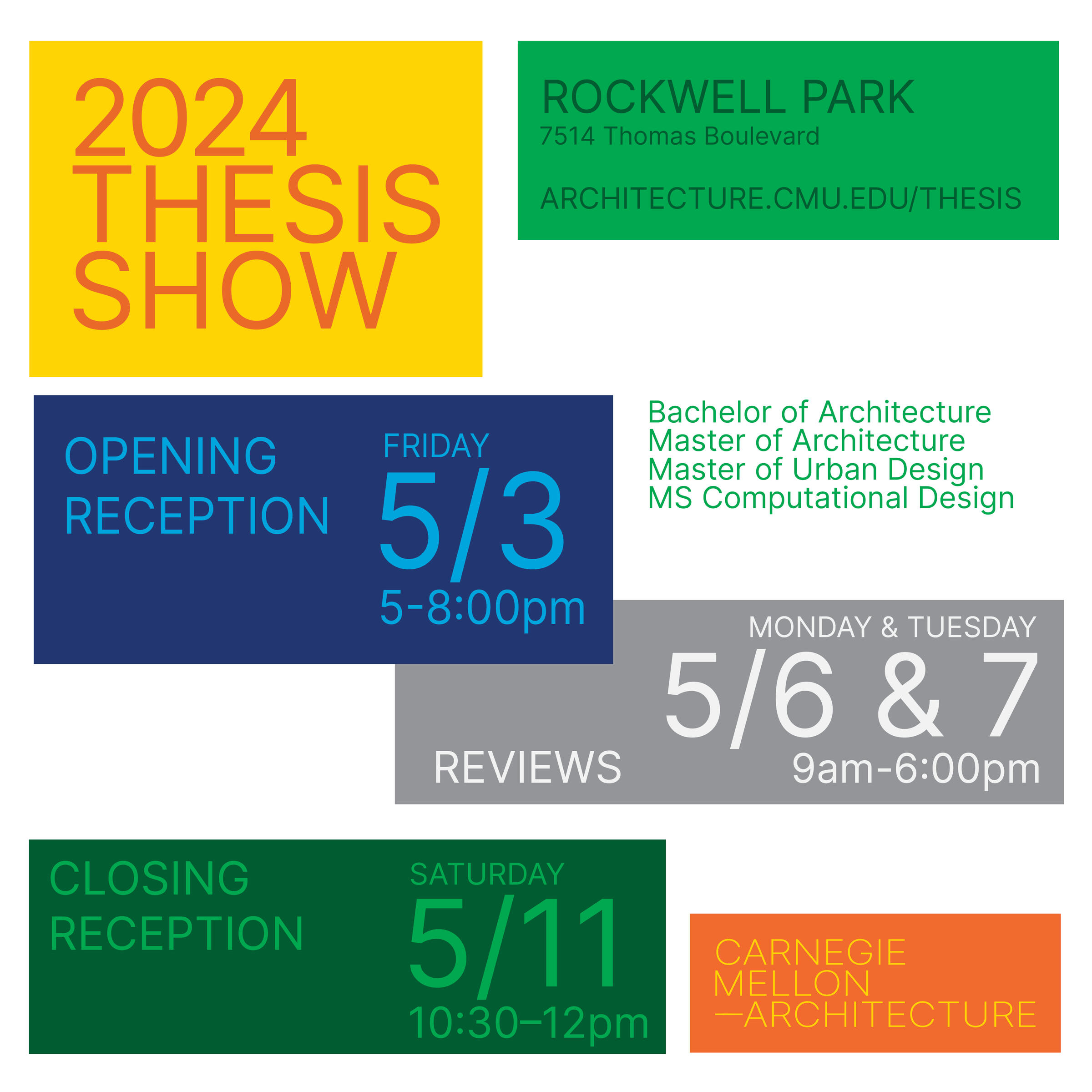Thesis
Thesis Events
Independent Thesis
Bachelor of Architecture and Master of Architecture students
Coordinators: Sarah Rafson and Mary-Lou Arscott

Computational Design (MS and PhD)
The Computational Design (CD) program investigates creative opportunities and critical issues at the nexus of design and computation. Fundamentally interdisciplinary, it mobilizes Carnegie Mellon University’s computational strengths critically towards design, architecture, and other creative disciplines.
With a shared emphasis on critical technical practice, faculty and students in the program draw from fields including computer science, robotics, human-machine interaction, machine learning, art, and science and technology studies to illuminate emerging potentials as well as unforeseen consequences of new technologies in design. The program examines topics including robotically-supported construction, machine learning- and AI-based approaches to design generation and analysis, tangible interaction, shape grammars, responsive environments, digital heritage, computational urban studies, as well as historical and ethnographic investigations into design technologies and technologically-mediated design practices. The program’s research and creative works are frequently discussed, published, and exhibited in leading national and international venues.
Advisors: Josh Bard, Daragh Byrne, Daniel Cardoso Llach, Omar Khan, Vernelle Noel
External Advisors: Dina El Zanfaly, Mayank Goel, Sinan Goral, Daniel Rosenberg, Jinmo Rhee
Track Chair: Daniel Cardoso Llach







